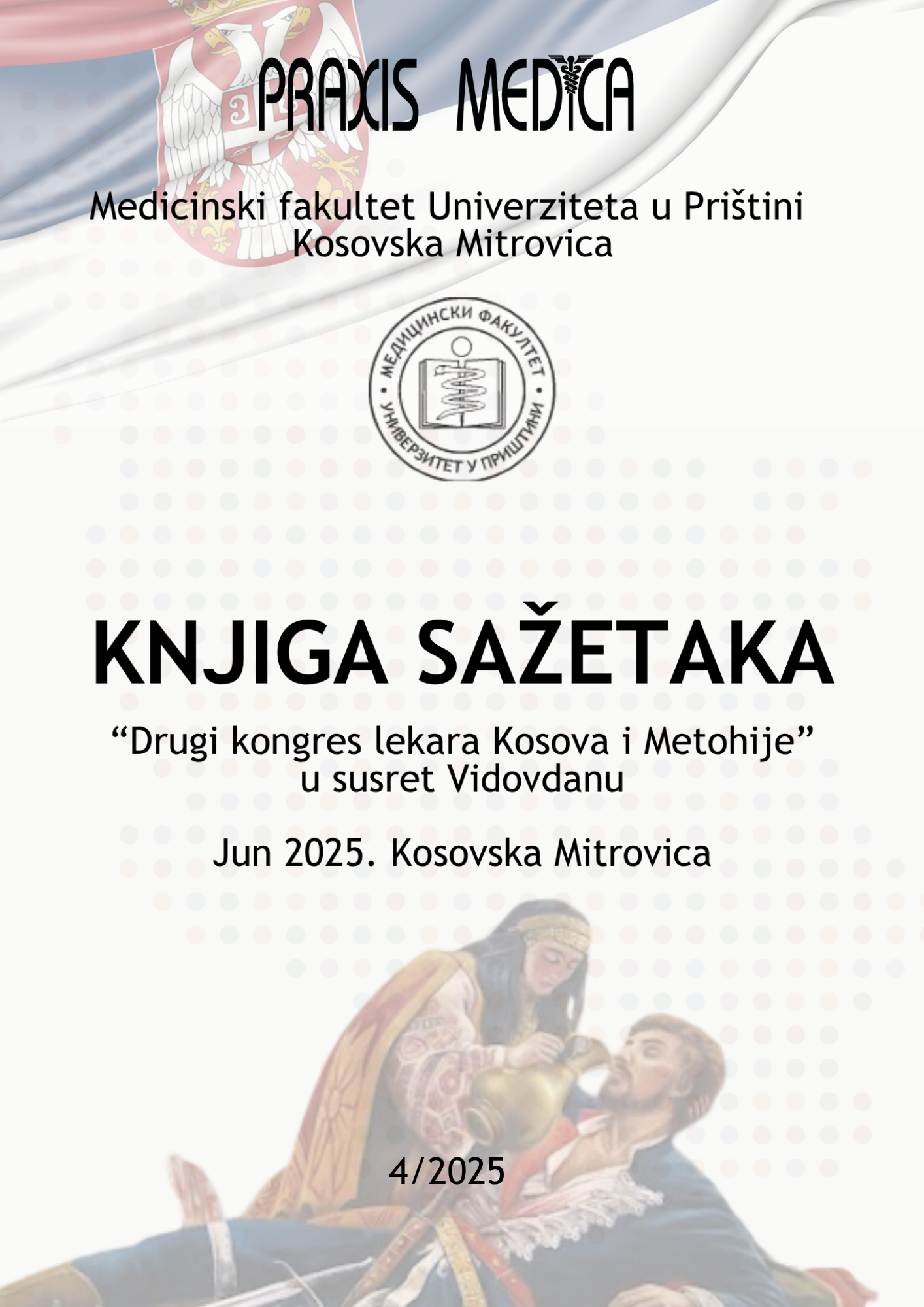
More articles from Volume 44, Issue 3, 2015
Comparative analysis of numerical density of ganglion cells with certain content of lipofuscin pigment in the parts of symphatetic trunk during the aging
Comparative analysis of biochemical parameters of atherosclerosis adiponectin and resistin in patients with diabetes mellitus and coronary heart disease
Changes in plasma brain natriuretic peptide levels during exercise stress echocardiography tests in patients with idiopathic dilated cardiomyopathy with or without preserved left ventricular contractile reserve
Comparative analysis of parameters of oxygenation, ventilation and acid-base status during intraoperative application of conventional and protective lung ventilation
The influence of microbiologic flora on the clinical course of malignant otitis externa
Citations

0
Comparative analysis of biochemical parameters of atherosclerosis adiponectin and resistin in patients with diabetes mellitus and coronary heart disease
Abstract
The most important adipocytokines affecting the formation and the regression of atheromas plaque in the coronary blood vessels are adiponectin and resistin. The essence of this test is to determine the correlation of the leading biochemical parameters of atherosclerosis, adiponectin and resistin and determine their interdependence with other biochemical parameters in patients with diabetes mellitus and coronary heart disease. Our study group consisted of 140 patients and 40 control group (healthy), 50 with diabetes mellitus and 50 with coronary heart disease (myocardial infarction and angina pectoris). We find that the average value of adiponectin in the group with type 2 diabetes mellitus were significantly lower than in the control group (4.38 to 6.74, p = 0.001, p <0.05). In the same study group average value of resistin was significantly higher than in the control group (15.8 to 7.88, p <0.001). The average value of adiponectin and resistin in patients with myocardial infarction and angina pectoris are no different from the value obtained in diabetes mellitus (4.94 to 4.38 and p = 0.397, p> 0.05). In the same study group average value of resistin was significantly higher than in the control group (15.73 to 7.88, p = 0.001, p <0.01) and not different than in the group with diabetes mellitus. Values Pearsonovg correlation coefficient shows that the biggest falls inversely proportional dependence of adiponectin with a simultaneous increase in resistin is expressed in patients with myocardial infarction, which is expressed very good correlation coefficient (-0.36). In all the groups, shows that there is a negative correlation between resistin and adiponectin, with increasing values of resistin values of adiponectin are reduced.
Keywords
References
Citation
Copyright

This work is licensed under a Creative Commons Attribution-NonCommercial-ShareAlike 4.0 International License.
Article metrics
The statements, opinions and data contained in the journal are solely those of the individual authors and contributors and not of the publisher and the editor(s). We stay neutral with regard to jurisdictional claims in published maps and institutional affiliations.






